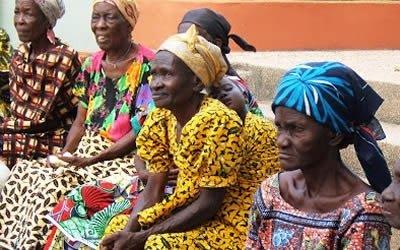The Ghana National Household Registry (GNHR) has collected data on about 80,000 poor and vulnerable persons in the Greater Accra Region out of which over 60 per cent of them are homeless.
About 62 per cent of the vulnerable individuals were female with about 50 per cent aged 18 – 39; about 20 per cent aged 40 – 59; and 10 per cent aged 60 and above; and the remaining under 18 years.
“Over 60 per cent of vulnerable individuals sleep in kiosks, containers, markets, uncompleted structures, on the streets, bus or lorry stations, chop bars or drinking spots, and at the beaches, exposed to natural hazards. Only very few people sleep in compound houses, mostly in overcrowded rooms”, the report added.
Dr Prosper Laari, National Coordinator of GNHR, said they collated the data during the lockdown period in the Greater Accra Region, which the Ministry of Gender, Children and Social Protection used for providing relief services during the period.
He said the compilation of such register involved the collection of information on the composition of socio-economic characteristics of households, adding that, upon completion it would serve as a database for the selection of beneficiaries for all social protection programmes in Ghana.
He said: “Three percent of the individuals live with disability, 68.1 per cent of the vulnerable persons above 15 years are migrants. Homeless people with their children constituted 63.8 per cent.
“Kayaye constitute 14.3 per cent of the working group, majority of whom were females and 1.3 per cent were foreign nationals.
“The children whose responses were collected from their parents, guardians or recognized adults, were grouped as follows; 0.9 per cent Orphans, 6.9 per cent Children under 15 years with no guardian, and 19.3 per cent of children aged 4 to 15 years not in school.”
Dr Laari said there was the need for a comprehensive and robust data on the poor and vulnerable to inform government’s decision-making for relief services to affected groups for a successful, productive social protection programme.
He said, “This will in turn improve the effectiveness and efficiency of social protection programme delivery.”
Latest Stories
-
Paris 2024: Opening ceremony showcases grandiose celebration of French culture and diversity
3 hours -
Spectacular photos from the Paris 2024 opening ceremony
4 hours -
How decline of Indian vultures led to 500,000 human deaths
4 hours -
Paris 2024: Ghana rocks ‘fabulous fugu’ at olympics opening ceremony
5 hours -
Trust Hospital faces financial strain with rising debt levels – Auditor-General’s report
5 hours -
Electrochem lease: Allocate portions of land to Songor people – Resident demand
5 hours -
82 widows receive financial aid from Chayil Foundation
6 hours -
The silent struggles: Female journalists grapple with Ghana’s high cost of living
6 hours -
BoG yet to make any payment to Service Ghana Auto Group
6 hours -
‘Crushed Young’: The Multimedia Group, JL Properties surprise accident victim’s family with fully-furnished apartment
6 hours -
Asante Kotoko needs structure that would outlive any administration – Opoku Nti
7 hours -
JoyNews exposé on Customs officials demanding bribes airs on July 29
7 hours -
JoyNews Impact Maker Awardee ships first consignment of honey from Kwahu Afram Plains
8 hours -
Joint committee under fire over report on salt mining lease granted Electrochem
8 hours -
Life Lounge with Edem Knight-Tay: Don’t be beaten the third time
9 hours

